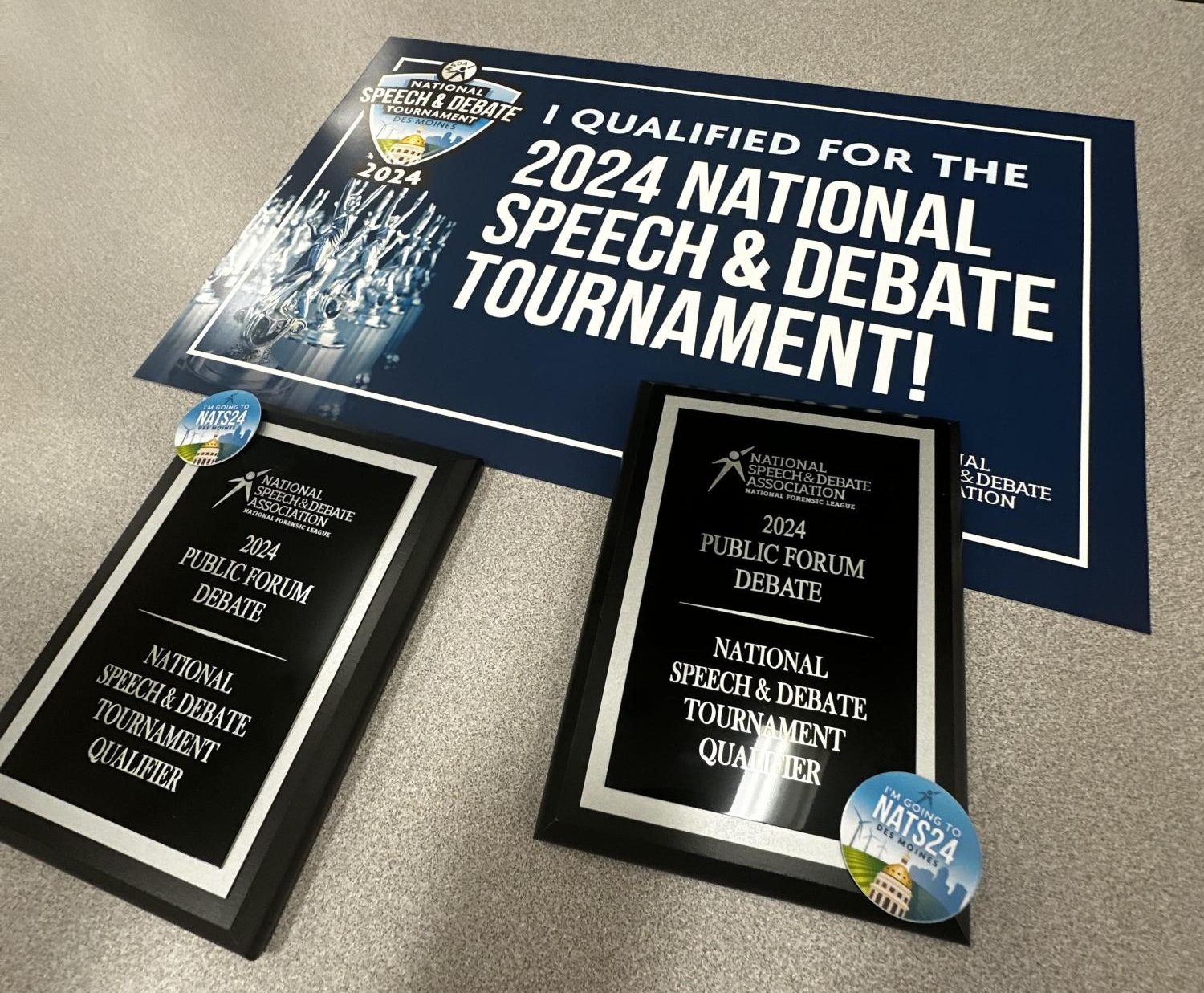On March 23, the speech and debate team attended the Heart of Texas NSDA Debate Tournament and finished with top placements in their respective events. President and junior Mayank Bharadwaj and sophomore Vikhyat Shahi secured second in their division with a 5-0 record, qualifying them for the national championship in Des Moines, Iowa, from June 16 -21.
Prior to this year, the team was affiliated with UIL and did not actively compete. Since then, the team has experienced significant growth by implementing a shift in leadership, increasing promotion and introducing opportunities to compete.
“I started [debate] because I feared public speaking and doing debate brought me out of my cocoon,” Bharadwaj said. “That’s what I wanted to give an opportunity for kids [here] to do as well.”
In debate events, a team collaborates to persuade a judge that their perspective on a given topic is more compelling. Speech events are split into two categories: interpretive and public address. In interpretive events, contestants choose and perform published material, while public address events involve delivering a speech that addresses a specific topic.
“Speech is very on the go and it’s a lot to do with your wits and how fast you think on your feet,” speech captain and junior Riyanjali Sengupta said. “A lot of it is just doing practice. More often than not I’ll be [practicing] after school just drawing topics between the whole cycle over and over.”
Competitors prepare for their events by meeting with their partners to discuss strategies, compiling necessary resources for preparation and completing assigned homework.
“It teaches students a lot of organizational skills and self-motivation skills,” debate sponsor Carrie Reavis said. “It really takes a lot of work and effort to prepare for debate rounds. It obviously gives them public speaking skills and critical thinking skills to help them win the rounds as well.”
As of right now, the club is free, ensuring there are no financial barriers for individuals interested in competing. Interested students are welcome to join at any point during the year and will receive guidance and support from the officer team. In the future, the team will compete in national circuit competitions across the country.
“There is an event for everyone,” Sengupta said. “It is a club that requires dedication and hard work and a true love for it. But if you want to be here, there is a place for you. Debate refines the most positive features in you and is something that carries on through every club or aspect of your life.”


